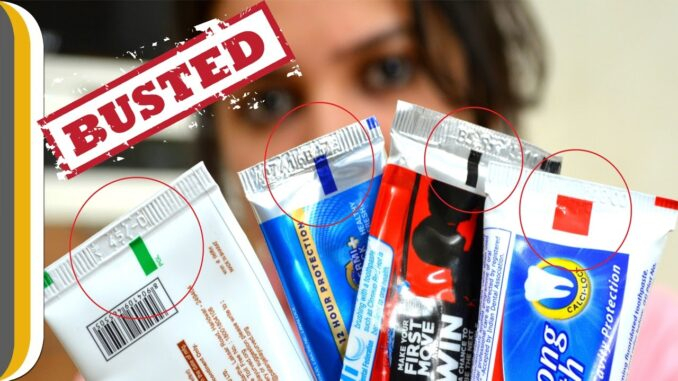Have you ever noticed the colored stripes on your toothpaste tube and wondered what they mean? These color codes actually serve a purpose beyond just aesthetics. Different toothpaste brands use color codes to help consumers identify the ingredients and benefits of the toothpaste at a glance.
For example, a blue stripe might indicate that the toothpaste contains fluoride for cavity protection, while a green stripe could signify that the toothpaste is made with natural ingredients. By understanding these color codes, you can make more informed decisions about which toothpaste is right for you and your oral health needs.
Toothpaste Color Code Chart
Decoding Toothpaste Color Codes
While the specific meanings of toothpaste color codes can vary between brands, there are some common themes to look out for. Here are a few examples:
– Blue: Often indicates the presence of fluoride for cavity protection.
– Green: Typically signifies natural or herbal ingredients.
– Red: May indicate tartar control or whitening properties.
By familiarizing yourself with these color codes, you can easily identify the key benefits of different toothpaste options and choose the one that best meets your needs.
Choosing the Right Toothpaste for You
When selecting a toothpaste, it’s important to consider your specific oral health needs. Whether you’re looking for cavity protection, whitening properties, or natural ingredients, there’s a toothpaste out there that’s perfect for you. By using the color code chart as a guide, you can make an informed decision and keep your smile healthy and bright.
Remember to consult with your dentist if you have any specific oral health concerns or conditions. They can provide personalized recommendations based on your individual needs and help you maintain optimal oral hygiene.
